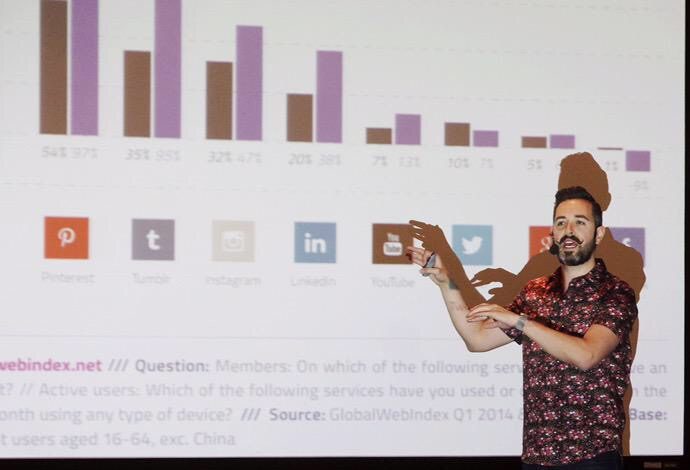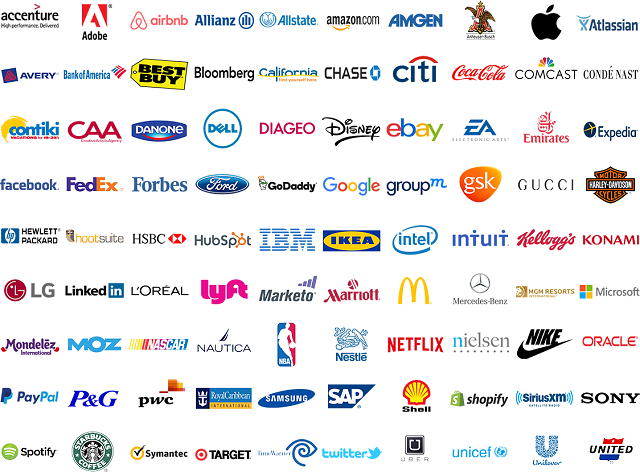Top AI Tools to Boost Your Marketing Efforts
In today’s fast-paced digital world, using artificial intelligence in marketing is essential. Businesses are always looking for new ways to stay ahead. AI Marketing Tools lead this revolution.
These advanced tools help marketers work smarter, create better customer experiences, and improve campaigns. With artificial intelligence marketing software, companies can understand their audience better. They can also predict trends and make smart decisions based on data.
Key Takeaways
- AI Marketing Tools enhance marketing efficiency and personalization.
- Artificial intelligence marketing software provides valuable customer insights.
- Leveraging AI in marketing strategies drives campaign effectiveness.
- Businesses can predict market trends with AI-driven analytics.
- Data-driven decisions are made possible with AI Marketing Tools.
The Evolution of Marketing in the AI Era
AI has changed marketing by letting marketers analyze huge data sets. They can now personalize experiences and adjust campaigns instantly. This change has made machine learning marketing solutions and automated marketing technology key to modern strategies.
The Shift from Traditional to AI-Powered Marketing
Old marketing used guesswork and broad groups. But AI-powered marketing uses data to know customers deeply. This move means using automated marketing technology to handle lots of data fast and right.
- Enhanced customer segmentation
- Personalized marketing messages
- Real-time campaign optimization
Why Marketers Need to Embrace AI Technology Now
Marketers who start with AI will lead the pack. Machine learning marketing solutions can guess what customers will do next. Experts say, “AI is not just a tool; it’s a strategic partner in marketing.”
“The future of marketing is not just about being digital; it’s about being intelligent and adaptive to change.”
Using AI, marketers can work smarter, make customers happier, and get better returns. It’s key for marketers to keep up and use AI in their plans.
Essential AI Marketing Tools for Modern Businesses
The modern business world is changing fast, thanks to AI-driven digital marketing tools. These tools are changing how companies market themselves. Now, businesses can use intelligent marketing automation to make their marketing better, more efficient, and effective.
Types of AI Marketing Solutions Available Today
There are many AI marketing solutions for businesses today. These include:
- Content Generation Tools: AI tools that create top-notch content, like blog posts and social media posts.
- Predictive Analytics Tools: Tools that use AI to guess what customers might do next.
- Chatbots and Conversational AI: AI chatbots that talk to customers, answer questions, and help out.
- Personalization Tools: Tools that use AI to make content and offers just right for each customer.
How These Tools Transform Marketing ROI
AI marketing tools can really change how well marketing works. They make things more efficient, cut costs, and get better results. For example, AI content tools save time and money on making great content. Predictive analytics tools help find the best marketing channels and improve campaigns.
By using these tools, businesses can:
- Enhance Customer Experience: AI personalization tools make customer experiences more tailored.
- Improve Marketing Efficiency: AI automation makes marketing tasks faster and cheaper.
- Drive Better Results: AI analytics tools help make marketing decisions based on data, leading to better ROI.
Content Creation and Copywriting AI Tools
Smart marketing software has introduced AI-driven copywriting tools. These tools are changing the marketing world. They make content creation faster and better for businesses.
Jasper AI
Overview
Jasper AI is a top AI tool for creating content. It uses natural language processing to make quality content. It helps marketers write engaging copy fast.
Pros
- High-quality content generation: Jasper AI makes well-structured and clear content.
- Time-saving: It cuts down the time needed for creating content.
- Versatility: Jasper AI works for many content types, like blog posts and social media.
Cons
- Dependence on input quality: The quality of Jasper AI’s output depends on the input.
- Potential for homogenization: Relying too much on AI might make content sound the same.
Features
- Content templates: Jasper AI has many templates to help with content creation.
- SEO optimization: It has tools to make content better for search engines.
Copy.ai
Overview
Copy.ai is a strong AI tool for marketers. It uses machine learning to create relevant content. It understands the context well.
Pros
- Creative content generation: Copy.ai is great at making creative and engaging content.
- User-friendly interface: It has an easy-to-use interface.
Cons
- Limited control: Users have little control over the content.
- Quality variability: The quality of content can change.
Features
- Multiple content formats: Copy.ai supports many content types, like social media posts and product descriptions.
- Brand tone adjustment: It lets users adjust the tone to fit their brand.
Writesonic
Overview
Writesonic is an AI platform for creating quality content. It helps marketers produce a lot of content.
Pros
- Scalability: Writesonic is great for businesses that need a lot of content.
- Quality content: It makes well-researched and engaging content.
Cons
- Cost: The platform can be pricey, especially for a lot of content.
- Learning curve: There’s a learning curve to using Writesonic well.
Features
- Content expansion: Writesonic can make existing content longer and more detailed.
- SEO optimization: It has tools to improve content for search engines.
Rytr
Overview
Rytr is an affordable AI tool for creating content. It’s for businesses and individuals looking for a budget-friendly option.
Pros
- Affordability: Rytr is priced well, making it accessible to many.
- Ease of use: It has a simple interface that makes creating content easy.
Cons
- Limited features: Rytr has fewer features than other tools.
- Content quality: The quality of content can be hit-or-miss.
Features
- Multiple tone options: Rytr lets users choose from different tones to match their brand.
- Content variety: It supports creating various content types, from emails to blog posts.
AI-Powered Social Media and Community Management
AI is changing how businesses manage social media. It gives them tools to better understand and connect with their audience. This makes social media easier to handle and more engaging.
Hootsuite Insights
Hootsuite Insights uses AI for deep social media analytics. It helps businesses know their audience better and improve their content.
Overview
Hootsuite Insights gives real-time data to boost your social media game.
Pros
- Real-time Analytics: Offers instant data on how you’re doing on social media.
- Audience Insights: Gives you the lowdown on who your audience is and what they like.
Cons
- Limited Customization: Some users say it’s hard to make it your own.
- Cost: The cool stuff costs more.
Features
- Social media monitoring
- Content performance analysis
- Audience demographics analysis
Sprout Social
Sprout Social is a top-notch social media tool. It uses AI to help you manage your social media better.
Overview
Sprout Social combines AI with features like scheduling and analytics. It’s all about making social media management easier.
Pros
- Comprehensive Toolset: It has everything you need for social media management.
- AI-driven Insights: Gives you tips to improve your social media game.
Cons
- Learning Curve: It can be tough for beginners.
- Cost: It might be too pricey for small businesses.
Features
- Social media scheduling
- Customer engagement tools
- Detailed analytics
Buffer with AI Capabilities
Buffer is a well-known tool for managing social media. It’s now even better with AI, making it easier for marketers.
Overview
Buffer uses AI to pick the best times to post and suggest content.
Pros
- AI-driven Scheduling: Finds the best times to post for more engagement.
- Content Suggestions: Gives you ideas for posts that will grab attention.
Cons
- Limited Analytics: It’s basic, which might not be enough for everyone.
- Integration Limitations: Some integrations aren’t as smooth as others.
Features
- Social media scheduling
- Content creation assistance
- Performance analytics
Lately AI
Lately AI is a tool for managing social media. It uses AI to help create and schedule posts.
Overview
Lately AI is all about turning long articles into social media posts.
Pros
- Content Transformation: It’s great at making long content fit for social media.
- Engagement Focus: Helps make content that really connects with people.
Cons
- Dependence on Content: You need long content to use it well.
- Limited Platform Support: It might not work as well on all platforms.
Features
- Content transformation
- Scheduling capabilities
- Engagement analytics
Using these AI tools can really boost your online presence. Each tool has special features for different parts of social media management. From analytics and scheduling to creating content and engaging with customers, they’ve got you covered.
Predictive Analytics and Customer Insights Tools
The rise of AI in marketing has brought about advanced tools. These tools help businesses make smart decisions based on data. They also predict customer behavior and tailor marketing strategies.
IBM Watson Analytics
Overview
IBM Watson Analytics uses AI to analyze data and offer insights. It simplifies the analysis process for marketers. This makes it easier to understand customers.
Pros
- Automated data analysis
- Actionable insights
- Integration with other IBM tools
Cons
- Steep learning curve
- Costly for small businesses
Features
It offers predictive analytics, data visualization, and automated reporting. These features help spot trends and patterns in customer behavior.
Google Analytics4 with AI Capabilities
Overview
Google Analytics4 is the latest version of Google’s analytics platform. It uses AI to give more accurate insights. It helps marketers track customer journeys across devices and platforms.
Pros
- Enhanced cross-device tracking
- Predictive metrics
- Integration with Google Ads
Cons
- Complexity in setup
- Limited customization
Features
It includes machine learning-powered predictive metrics and enhanced data control. It also improves integration with other Google tools.
Salesforce Einstein
Overview
Salesforce Einstein is an AI tool that offers predictive insights and recommendations. It helps marketers personalize customer experiences and boost engagement.
Pros
- Predictive insights
- Personalization capabilities
- Integration with Salesforce CRM
Cons
- Dependent on Salesforce ecosystem
- Cost considerations
Features
It has predictive scoring, automated email recommendations, and customer journey mapping. These features help marketers create targeted campaigns.
Adobe Analytics with Sensei
Overview
Adobe Analytics with Sensei is a powerful analytics solution. It uses AI to uncover hidden insights. It helps marketers understand customer behavior and improve strategies.
Pros
- Advanced segmentation
- Predictive analytics
- Real-time data analysis
Cons
- Complexity
- Cost
Features
It includes anomaly detection, contribution analysis, and AI-driven insights. These features help marketers find opportunities and challenges in customer data.
By using these tools, businesses can improve their marketing. They can also enhance customer engagement and increase ROI. As machine learning marketing solutions and automated marketing technology evolve, marketing strategies will become more sophisticated.
Conversational AI and Chatbot Platforms
Conversational AI is changing how we talk to customers. Chatbot platforms lead this change. They offer 24/7 support, personalize experiences, and make communication smoother.
Drift
Overview
Drift is a marketing platform that uses AI for real-time customer engagement. It has chatbots, live chat, and email marketing automation.
Pros
- Personalized Customer Experience: Drift’s chatbots tailor conversations to customer data.
- 24/7 Support: It lets businesses offer support any time.
Cons
- Steep Learning Curve: Drift needs technical skills to set up and use well.
- Cost: It can be pricey, especially for big companies.
Features
Drift offers AI chatbots, live chat, and email marketing automation. It also works with CRM systems like Salesforce.
Intercom
Overview
Intercom is a messaging platform that uses AI for customer communication. It has chatbots, live chat, and targeted messaging.
Pros
- Targeted Messaging: Intercom’s AI messaging targets specific customer groups.
- Customer Segmentation: It helps businesses segment customers by behavior and preferences.
Cons
- Limited Automation: Intercom’s automation is not as strong as other platforms.
- User Interface: Some find its UI too cluttered and hard to use.
Features
Intercom’s main features are AI chatbots, live chat, and targeted messaging. It also works with CRM systems like Salesforce.
ManyChat
Overview
ManyChat is a chatbot platform for messaging apps like WhatsApp and Facebook Messenger. It enables businesses to create AI chatbots.
Pros
- Ease of Use: ManyChat is easy to use, no need for technical skills.
- Multi-Channel Support: It supports many messaging channels, including WhatsApp and Facebook Messenger.
Cons
- Limited Customization: ManyChat’s customization options are not as wide as other platforms.
- Dependence on Messaging Apps: Its success relies on the popularity of messaging apps.
Features
ManyChat offers AI chatbots, supports many channels, and has automation features.
Chatfuel
Overview
Chatfuel is a chatbot platform for messaging apps like Facebook Messenger. It helps businesses create AI chatbots.
Pros
- Easy Integration: Chatfuel works well with Facebook Messenger.
- AI-Powered Chatbots: Its chatbots can understand and answer customer questions.
Cons
- Limited Multi-Channel Support: Chatfuel mainly supports Facebook Messenger.
- Cost: It can be expensive, especially for big companies.
Features
Chatfuel’s main features are AI chatbots, easy Facebook Messenger integration, and automation.
Personalization and Customer Experience AI Solutions
Customers now want experiences that feel made just for them. Businesses are using AI to make this happen. They use AI tools to send content and offers that really speak to each customer. This makes customers happier and more loyal.
Dynamic Yield
Overview
Dynamic Yield is a top choice for personalization. It uses AI for real-time personalization on websites and mobile apps.
Pros
- Advanced algorithms for personalization
- Real-time data processing
- Multi-channel support
Cons
Some find the setup too complex. It needs a lot of training.
Features
Dynamic Yield has cool features like predictive analytics and automated content optimization. It’s a big help for marketers.
Optimizely
Overview
Optimizely is known for its AI. It helps businesses make their digital experiences better through testing and personalization.
Pros
- Robust experimentation capabilities
- AI-driven insights
- Personalization across channels
Cons
It can be pricey for small businesses. Some features need tech skills.
Features
Optimizely has AI-powered recommendations and advanced segmentation. This lets businesses give targeted experiences.
“The key to successful personalization is understanding your customer and using data to drive meaningful interactions.” –
Persado
Overview
Persado uses AI to create high-performing marketing copy. It uses machine learning algorithms.
Pros
- AI-generated content
- Data-driven creative decisions
- Multi-language support
Cons
Some users feel the AI limits their creative freedom.
Features
Persado offers automated content creation and optimization. This helps marketers get better engagement.
Bloomreach
Overview
Bloomreach is a platform for customer experiences. It uses AI for personalized experiences across different channels.
Pros
- Unified customer view
- AI-driven personalization
- Content optimization
Cons
It can be complex. It also needs a lot of setup.
Features
Bloomreach has product recommendations and search optimization. It makes the customer experience better.
Using AI tools for personalization can really help businesses. It makes customers happier and more loyal. As intelligent marketing automation gets better, so does the chance to change how we interact with customers.
Implementing AI Marketing Tools: Best Practices and Strategies
More businesses are using advanced AI marketing platforms. It’s key to have good strategies for using AI in marketing. AI can make marketing better and help engage customers more.
Creating an AI Implementation Roadmap
Creating a clear plan is vital for using AI well. First, find out how AI can solve marketing problems. Then, set achievable goals and figure out what resources you need. A good plan makes using AI smoother and more beneficial.
Training Your Team on AI Marketing Technologies
It’s important to train your team on AI marketing tools. They need to know how to use them and understand the data they give. Good training helps teams use AI well and make smart choices based on data.
Measuring Success and Optimizing AI Performance
It’s important to check how well AI marketing is doing and make changes as needed. Look at important performance indicators (KPIs) and use AI insights to improve. This way, you can make your AI marketing better and get better results.
By following these tips, marketers can use AI marketing tools well. This can greatly improve their marketing efforts.
Conclusion
AI marketing tools are changing how businesses market themselves. They help with creating content, managing social media, and understanding customer behavior. These tools make marketing more efficient and effective.
Using AI marketing tools, marketers can do more with less effort. They can learn about customers and tailor their marketing. This boosts marketing success and keeps businesses ahead in the digital world.
If you’re thinking about using AI marketing tools, have a plan first. Train your team well and keep an eye on how well it works. With the right steps, AI can help you meet your marketing goals and succeed in the long run.
FAQ
What are AI marketing tools, and how do they enhance marketing efforts?
AI marketing tools use artificial intelligence to boost marketing. They analyze data, predict what customers will do, and make experiences personal. They also automate tasks, making marketing more efficient and effective.
How do AI-powered social media management tools work?
Tools like Hootsuite Insights and Sprout Social use AI to understand social media trends. They help plan posts, respond to comments, and keep an eye on brand mentions. This makes managing social media easier.
What is the role of predictive analytics in marketing?
Predictive analytics forecast what customers will do next. Tools like IBM Watson Analytics and Google Analytics4 with AI Capabilities help marketers make smart choices. They predict things like who might leave, who will buy, and how campaigns will do.
How can conversational AI and chatbots improve customer engagement?
Conversational AI and chatbots offer 24/7 support and answer questions. They help customers find their way around websites or apps. Tools like Drift and Intercom use AI to understand and respond to customer needs, improving the experience and reducing human support work.
What are the benefits of using AI for personalization and customer experience?
AI personalization, like what Dynamic Yield and Optimizely offer, tailors content and offers to customers. This makes customers happier, more loyal, and can increase sales. It shows customers that the brand gets them.
How do I choose the right AI marketing tool for my business?
Pick the right AI tool by thinking about your business needs and marketing challenges. Look at the tool’s features, how easy it is to use, and the support it offers. Make sure it can show you how it’s helping your business grow.
What are the key considerations for implementing AI marketing tools?
To use AI tools well, plan carefully. Make a roadmap, train your team, and set goals to measure success. Make sure your data is good, as AI relies on it. Always check how well the tools are working and improve them as needed.





































No comments